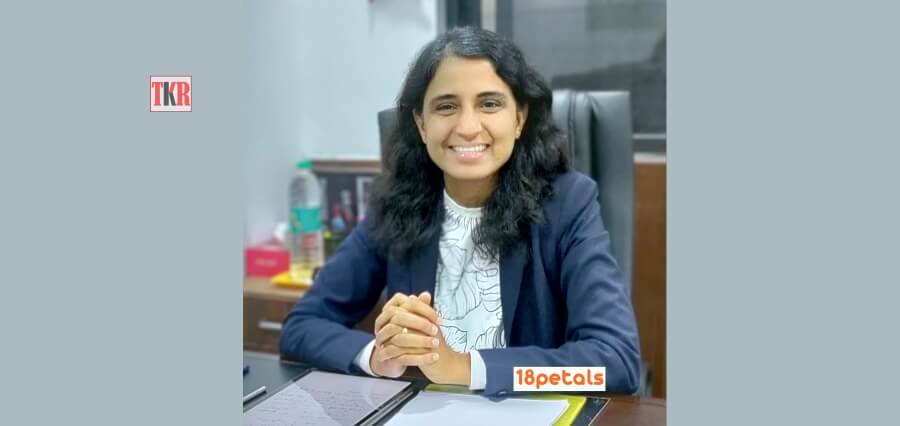I have often experienced this question echoing around. Be it between the adults within a family or brought up in a social setup, say by the school or relatives, esp. in the shape of – Why do we need to go for parent counselling?
Isn’t bringing up a child the most natural instinctive act being carried out for thousands and thousands of years, even before languages, cultures or social concepts were developed within humankind?
Our parents raised us; we observe people around us and have it coded within our DNA to pay attention to a wailing child. Shouldn’t that be enough?
The challenge could be that it may not be enough!
Let’s see how generations have moved on in the past few decades. One generation takes about 20-25 years (or 30) to move on to another generation. This is when a person has accomplished a more significant chunk of the social cycle, including having a child in many cases.
That means a person born in the 1990s could be raising a child today. And the grandparents could be from the 1960s. If we see how the world has moved each time, we will notice that our world has changed massively across these generations.
Simple instances could be: What was the typical age of parents when a child was raised in the 1960s or even in the 1990s? What was the quantity of time that the child spent being overseen by some adults around? How many siblings did the child have before? Academically, how many three years old would be in a formal education structure? How many PTM meetings were held? How many children went for tuition? What was the high-level daily routine of the child and social influences within? How long was the child expected to be involved in sedentary activities? How easy was the accessibility of on-demand food or on-demand entertainment? What was the nature of the career opportunities available around?
We must accept that the world has changed by leaps and bounds, especially across these generations. That would also imply that we may no longer be able to copy-paste the same parenting ingredients or keep turning the same parenting wheel from one generation to another.
Further, some of the adults who have turned into parents today carry a baggage of unhealed wounds from their own childhood. It creates a vacuum within the adult who is clear on ‘How I am NOT going to raise my child’, but because there is no foundation of an alternative structure, it could lead to chaos and unpredictable parent-child connection for them. When the predictability and consistency in a parent-child relationship are shaky, the parent could keep see-sawing between being too harsh on the child, too permissive, or giving up and being disconnected from the child. In any of the cases, it brings more maladaptation in the child’s behaviour.
This is where the role of the parent counsellor comes into play. The counsellor has the ears on the changing dynamics of society, structures, relationships and expectations. Apart from connecting with the child to understand the inner narrations and self-beliefs, the counsellor also understands the family setup, background and interpersonal connections. Using different modalities, the counsellor extends their counsel through a tip, an idea or a direction on the one hand, and on the other hand, maybe giving a warning or sharing information and facts with the parents.
In an impartial and unbiased manner, the counsellor can help the parents shift the vision of the prism in a manner that connects with the parents’ personalities and the child’s temperament. Often a part of the counsellor’s work entails helping the parents be aware of their FEARS. Many kinds of fears are wedged within the act of raising a child. It could be as simple as future actions being guided by the past actions of the child.
Sometimes the fear could even be of anticipation of pain based on the parent’s own experiences; say, the parent was an introvert himself and felt it didn’t help him through his life so far. Or the fears put in by the society around them. I came across an adolescent child who had a tuition teacher with a reverse way of motivating the child – I don’t think you can become a doctor in the future. Your performance is so bad!
While working with the parents, the counsellor helps the parents be more self-aware of how holding on to the labels driven by past acts of the child works against the child’s natural tendency to evolve and adapt. A simple instance could be how a four-year-old’s colouring within the boundaries would be naturally different from an eight-year-old’s, even if nobody guides the child into seeking perfection.
Parent counselling is also about helping the parents see how their communication could affect their connection with the child and the “Who am I” of the child. A weak parent-child relationship acts as a barrier and blocker for the parents’ views and well-intentioned concerns to reach the child in a manner that brings in positive influence.
The ultimate aim of parenting counselling is to slowly help the parent and child to establish a connection in an age-appropriate and two-way manner, letting the child experience what the child needs “A safe, predictable space within the family.” Ultimately when the family is strung in a way to vibrate together at frequencies that bring in music of harmony and not the chaos of cacophony, together they evolve as the child passes on from early childhood to preteens to teenager.
About the Author
Kiran Tevtiya, Child Behavioural Psychologist, Parenting Counsellor and Founder of 18petals.com
18petals is about child behaviour, psychology and parenting, working with children from ‘Toddlers to Teens’. It specialises in the age-appropriate development of children in areas like social, emotional, intra-personal, interpersonal, conflict management, addictions, fears, anxieties, aggression, oppositional, attention/ focus, and parent-child connection. Through in-person and online consulting, it supports families with child-based and family-based interventions per their needs.









